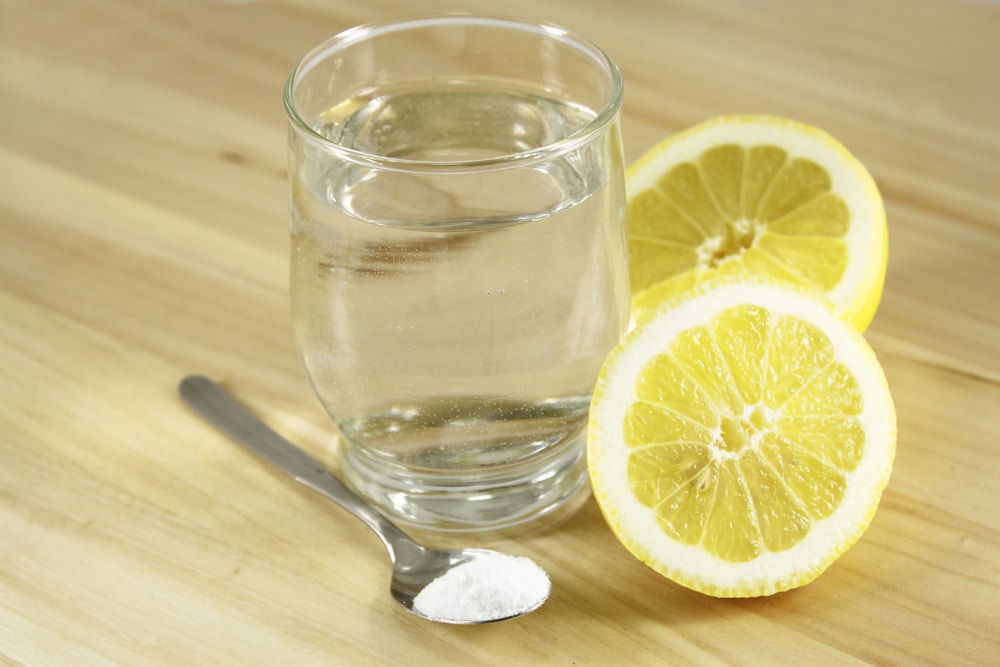Lemon water with salt is a refreshing drink that combines the sharp, tangy flavor of fresh lemon with the mild saltiness of either sea salt or Himalayan salt.
This simple yet flavorful drink offers a wonderful balance between sour and salty tastes, making it an enjoyable choice for many people.
Not only does it taste good, but it also comes with a variety of health benefits.
Drinking lemon water with salt can help improve digestion, provide hydration, and support your immune system.
The combination of lemon and salt also helps to balance your body’s pH levels, giving you a boost of energy.
Making this drink is incredibly easy and affordable.
All you need is a glass of water, a squeeze of fresh lemon juice, and a pinch of salt.
It’s quick to prepare and doesn’t require any expensive ingredients.
What’s more, this drink is supported by scientific research, which shows that it can have a positive impact on your overall health when consumed regularly.

Nutritional Profile of Lemon Water with Salt
The nutritional value of this drink depends on its two main ingredients: lemon and salt.
Lemon:
- Vitamin C: Supports the immune system and helps fight off colds.
- Potassium: Essential for heart health and muscle function.
- Antioxidants: Combat harmful free radicals in the body.
Salt (Preferably Himalayan or Sea Salt):
- Sodium: Maintains fluid balance and supports nerve function.
- Trace Minerals: Includes magnesium, calcium, and potassium for overall well-being.
When mixed with water, this drink becomes a source of hydration, vitamins, and essential minerals.
Benefits of Lemon Water with Salt
Boosts Hydration
Drinking lemon water with salt is an excellent way to stay hydrated.
The salt helps your body retain water, while lemon adds flavor, encouraging you to drink more.
This combination is especially useful for athletes or anyone engaging in physical activity.
Staying hydrated also improves your focus, energy levels, and overall mood, making it a fantastic drink to sip throughout the day.
Enhances Digestion
Lemon water with salt can aid digestion by stimulating stomach acid production.
It helps break down food more efficiently, reducing bloating and discomfort.
The combination promotes a healthy gut environment, which is crucial for nutrient absorption and waste elimination.
For students, this is great news, as better digestion can improve focus and energy levels during school.
Supports Immune Function
The vitamin C in lemons is a key player in boosting your immune system.
It helps your body fight off infections, keeping you healthy during flu season.
Salt also contains minerals that contribute to cellular function and immunity, further enhancing this drink’s protective qualities.
Balances Electrolytes
Electrolytes like sodium, potassium, and magnesium are vital for muscle function and nerve signaling.
Salt replenishes lost electrolytes, especially after sweating or exercise.
Lemon’s potassium content complements this, creating the perfect rehydration drink to restore your body’s natural balance.
This is especially helpful for active teens, as electrolyte imbalance can lead to fatigue and cramps.
Improves Skin Health
Lemon is rich in antioxidants and vitamin C, which promote collagen production.
This helps reduce wrinkles, brighten the skin, and keep it glowing.
Salt can help flush out toxins from the body, further improving skin clarity and reducing breakouts.
When consumed regularly, lemon water with salt can make your skin look healthier and more vibrant.
Provides an Energy Boost
Feeling sluggish? The natural sugars and potassium in lemon can give you a quick energy lift.
Salt’s minerals also contribute to sustained energy levels throughout the day.
This makes it a great morning drink to kickstart your day or a midday refreshment to keep you going.
The combination of lemon and salt helps maintain blood sugar levels, preventing energy crashes.
Supports Weight Management
Drinking lemon water with salt can curb cravings and keep you feeling full longer.
Lemon helps in breaking down fats, while salt reduces sugar cravings by balancing electrolytes.
The hydrating properties of this drink also contribute to better metabolism and digestion.
When paired with a healthy diet, this drink can support your weight-loss goals and promote overall health.
Enhances Oral Health
Lemon water with salt can neutralize bad breath and promote oral hygiene.
Lemon’s acidity kills bacteria, while salt has natural antiseptic properties that help prevent gum infections.
However, be sure to rinse your mouth afterward to protect tooth enamel from lemon’s acidity.
With regular use, this drink can leave your mouth feeling fresher and cleaner.
Promotes Alkalinity
Although lemon tastes acidic, it has an alkalizing effect on the body once metabolized.
An alkaline body environment helps reduce inflammation, support kidney function, and maintain overall health.
Adding salt enhances this alkalizing effect by balancing the body’s pH levels.
This makes lemon water with salt a powerful drink for promoting internal harmony and fighting acidity-related health issues.
How to Make Lemon Water with Salt
Ingredients:
- 1 fresh lemon
- 1/2 teaspoon sea salt or Himalayan salt
- 1 glass of warm or room-temperature water
Instructions:
- Cut the lemon in half and squeeze the juice into a glass.
- Add the salt and mix well.
- Fill the glass with water and stir until the salt dissolves.
- Optional: Add a teaspoon of honey for a touch of sweetness.
Enjoy this refreshing drink first thing in the morning or after exercise for maximum benefits!
Possible Side Effects
While lemon water with salt is generally safe, there are a few precautions to keep in mind:
Tooth Enamel Erosion
The acidity of lemon can wear down enamel over time, especially if consumed in excess.
To minimize this risk, always rinse your mouth with plain water after drinking lemon water with salt.
Excessive Salt Intake
Too much salt can lead to high blood pressure and water retention.
Stick to the recommended amount and use natural salts like Himalayan or sea salt for better results.
Stomach Sensitivity
Lemon’s acidity may irritate those with acid reflux, ulcers, or sensitive stomachs.
If you experience discomfort, reduce the amount of lemon juice or consult a healthcare professional.



